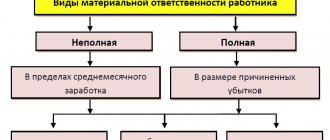From this material you will learn:
- What is unfair competition
- 8 methods of unfair competition used in practice
- How to recognize signs of unfair competition
- A good example of unfair competition in Russia
- 5 legal ways to protect yourself from unfair competition
- How to file a complaint with the FAS about unfair competition
- What is the liability for unfair competition?
- Methods for independently suppressing unfair competition
- What to do if a case of unfair competition is initiated against you
Competition is the main component of any market that is beneficial to the client. Fair competition between rivals contributes to an adequate pricing policy, a wide product offering, and the emergence of new technological solutions. Unfair competition slows down the process of economic development and neutralizes many positive factors that arise in open confrontation.
What does fair and unfair competition mean?
The concept of unfair competition refers to a struggle between companies organized in circumvention of current legislation. It is believed that it is carried out using prohibited methods, when human rights, the interests of other organizations, and established business relationships are violated. The law on unfair competition is reflected in the acts “On the Protection of Consumer Rights” and “On the Protection of Competition”. It regulates relations between opposing companies.
The following features of unfair competition are distinguished:
- one company seizes all the privileges in the field of activity;
- the laws of the Russian Federation, the rules of ethics and business relations are violated;
- organizations are damaged and there is a negative impact on business.
If a company uses fair and legal methods of struggle, then no damage is caused to another enterprise.
We recommend
“Competitive advantages of a company: how to form and develop” More details
You can distinguish fair competition from dishonest confrontation by a number of signs. Fair struggles include:
- small markups on the product;
- offering a product of higher quality than others;
- use of incentive programs and promotions;
- raising standards of work with customers;
- warranty and post-warranty service;
- gifts for consumers;
- free related services (delivery, setup, connection, etc.).
That is, a fair fight between companies is one that is conducted in accordance with the law.
All actions that are carried out in non-compliance with the law are unfair competition in the market. These include:
- use of illegal methods to disclose trade secrets;
- copying the goods of another company, but with obviously low quality of workmanship, which ultimately harms the reputation of the original;
- the name of the organization contains prohibited words; it is similar visually and in sound to the name of a well-known company, which is why buyers confuse the company with the latter;
- methods that mislead the client regarding the origin of the goods;
- deliberately caused damage to opponents' products;
- illegal methods of obtaining information about a competitor’s business and their unfair use;
- extortion and slander of an opposing company;
- exaggerating or lying about the characteristics or quality of a product in order to gain an advantage in the market;
- advertising of a product that discredits the name of the opponent, or contains incorrect information.
In modern Russia on the territory of the former CIS countries, the manifestation of unfair competition is most often carried out in the form of bribery. Dishonest businessmen use bribery to direct inspections to enemy companies.
Article 34 of the Constitution of the Russian Federation is the main legislative act establishing the inadmissibility of monopolization and the right to entrepreneurial activity.
Federal Law No. 135-FZ contains provisions that define the concept of unfair competition, its characteristics and methods of manifestation.
Recommended articles on this topic:
- Competitive advantages of a company: how to form and develop
- How to make a business successful and not become a “firefighter” for your company
- Company marketing strategy: from development to analysis
The Criminal Code of the Russian Federation and the Code of Administrative Offenses describe the responsibility and types of punishments for the methods of unfair struggle of opponents.
The Russian Federation Law “On the Protection of Consumer Rights” also touches on some issues related to unfair competition.
Discredit (dissemination of false, inaccurate or distorted information)
Discredit (Article 14.1 of the Federal Law) is the dissemination of false, inaccurate or distorted information that may cause losses to a business entity and (or) damage its business reputation, including in relation to:
- the quality and consumer properties of a product offered for sale by another competing business entity, the purpose of such a product, the methods and conditions of its production or use, the results expected from the use of such a product, its suitability for certain purposes;
- the quantity of goods offered for sale by another competing business entity, the availability of such goods on the market, the possibility of purchasing them under certain conditions, the actual size of demand for such goods;
- the conditions under which a product is offered for sale by another competing business entity, in particular the price of the product.
This prohibition corresponds to the provisions of sub-clause. 2 p. 3 art. 10.bis of the Paris Convention for the Protection of Industrial Property, which unfair competition as false statements in commercial activities that are likely to discredit the enterprise, products or industrial or commercial activities of a competitor.
At the same time, discrediting is aimed at attracting consumers to one’s own products by disseminating false information about a competitor, its goods and services.
Learn more about spreading false, inaccurate or distorted information
According to paragraph 7 of the Resolution of the Plenum of the Armed Forces of the Russian Federation of February 24, 2005 No. 3 “On judicial practice in cases of protecting the honor and dignity of citizens, as well as the business reputation of citizens and legal entities” under the dissemination of information discrediting the honor and dignity of citizens or business reputation citizens and legal entities should be understood
- publication of such information in the press,
- broadcast on radio and television,
- demonstration in newsreels and other media,
- distribution on the Internet, as well as using other means of telecommunications,
- statements in job descriptions, public speeches, statements addressed to officials, or
- communication in one form or another, including oral, to at least one person.
The communication of such information to the person to whom it concerns cannot be recognized as its dissemination if the person who provided the information took sufficient confidentiality measures so that it does not become known to third parties.
If an economic entity disseminates information in one way or another, accessible for recording, in relation to a competing economic entity and such entity does not prove the accuracy of the information disseminated, then such actions are subject to qualification as unfair competition.
Despite the fact that discredit is directly directed against a specific entity or group of persons, such actions can have negative consequences not only for them: if information about a manufacturer or its products turns out to be false, then the consumer, misled by it, may suffer losses. Situations cannot be excluded when a subject disseminates untrue information about himself and does not have the goal of discrediting a competitor.
When applying this rule of substantive law, it is necessary to find out whether such an action gives rise to certain expectations among market participants that can distract clients in one or another market segment and concentrate their interests in the direction desired by an unscrupulous participant.
How to recognize signs of unfair competition
Illegal methods of dealing with opponents violate established norms that are accepted in any activity. When a company is forced out of the market, the moral aspect is also affected. Let us consider the forms of unfair competition by which this phenomenon is identified.
- Specific actions of an illegal nature that violate generally accepted norms and rules. If there are no such violations, then we cannot talk about unfair confrontation.
- Targeted actions to capture advantages. That is, they are not aimless, but aimed at obtaining something, for example, a leading position in the market.
- Unfair actions that go against the law, business rules, and moral standards.
- Losses of competitors. They can be real or potential, involving additional costs and lost profits. For example, a company did not enter into another supply contract because its competitors ruined its reputation.
- Causing damage to the prestige of the company, which leads to real losses in the form of decreased profits and loss of contracts. Harm may be potential, such as possible damage due to the spread of slander about the company. Reputation is precisely that intangible asset of an organization that directly affects its successful functioning.
Thus, unfair competition causes real and potential harm to companies.
What is competition and what is its economic significance?
Competition is the rivalry between participants in a market economy to achieve more favorable conditions for the production of goods and services, their purchase and sale, in order to obtain a permanent income.
Thus, struggle is the law of the market. The essence of competition comes down to the fact that the buyer has many opportunities to purchase the product he needs, and the seller has many opportunities to sell it. But both parties, in this case, have to look for a compromise to reach an agreement: the consumer will not buy the product at too high a price, and the seller will not sell it at a low price, thereby incurring losses.
Competition is of great economic importance in the development of a market economy:
- Contributes to the formation of the cost of goods and services that meets the needs of both sides of market interaction.
- Directs existing resources to the production and sale of goods and services for which there is demand, eliminating the loss of enterprises.
- Stimulates the introduction of innovative technologies in the production sector to increase the benefits of the product.
- Creates conditions for successful enterprises to make profits and leads to bankruptcy of uncompetitive firms.
- Acts as a tool to prevent the emergence of monopolies.
- Contributes to the formation of government support and protection from prohibited methods of struggle.
Monopolistic activity and unfair competition - how do they relate:
But there are also negative factors in the development of competition:
- Excessive struggle prevents the formation of a stable situation in the market.
- The high level of existing firms makes it difficult for new manufacturers to enter the market.
- The pursuit of profit leads to the emergence of dirty methods of competition.
But it should be noted that only methods of fair competition are suitable for the development of a market economy.
What are the principles of fair competition based on?
In order for an entrepreneur to stay afloat and achieve sustainable, stable profits, it is necessary to constantly develop and improve working methods.
Due to what parameters can a businessman win:
- improving the quality of the final product through the introduction of new production technologies, improving resources, using scientific achievements, etc.;
- improving marketing strategy and advertising campaign;
- providing additional opportunities and guarantees to the consumer;
- changes in pricing to increase demand for the product;
- the use of legal support and government protection (antimonopoly committees) in the fight against illegal methods of increasing profits.
A good example of unfair competition in Russia
Unfair competition, examples of which are well-known and very indicative, is also carried out in our country. We are talking about the famous ups and downs between major search networks: Yandex and Google.
The reason for the proceedings was the following circumstances: to access any function of the Android operating system, you must install all Google services. Moreover, at first it was stated that Android users would be able to choose software according to their preferences. Google did not want to cooperate with other software developers and limited consumer choice only to its own software. People were forced to use Google's services, as a result of which the company's position in the market increased dramatically. Yandex did not remain in debt: the result was a complaint about unfair competition to the Federal Antimonopoly Service (FAS).
Article 10 of the Civil Code of the Russian Federation states that human rights should not be involved in unfair competition. To obtain a high place in the market, firms do not have the right to limit people's choices. The Federal Law “On Protection of Competition” was also violated. As a result of the initiation of a case of unfair competition by Google in September 2020, it was found guilty, after which it filed an appeal to the Moscow Arbitration Court. As a result, a closed hearing was held, attended only by a representative from Yandex.
The court's decision in March 2020 regarding the sentence confirmed the actions of the Federal Antimonopoly Service and that Google does indeed engage in forms of unfair competition.
Representatives of the company appealed to the courts repeatedly, most recently in January 2020 to the Supreme Court of Russia. The cases were unsuccessful everywhere, and therefore the head of the Federal Antimonopoly Service, Igor Artemyev, announced the possibility of similar lawsuits against Google all over the world, not only in Russia, since the search engine is actually engaged in unfair struggle.
Does competition have downsides?
So, fair competition is methods of fighting for the buyer that do not contradict the legislation and moral and ethical principles formed by modern society. However, one cannot help but note the fact that this phenomenon also has a number of negative aspects, the most relevant of which are described in the list below:
- Competition disrupts the stable situation that has been maintained in the market for several years. Even very large and well-known companies can suffer if a brand or service comes along that appeals to customers more than what the corporation can offer.
- Most participants in business relations strive to monopolize their particular segment. This trend leads to limited opportunities for new entrepreneurs to break into the market, even if their products are really very good.
- The desire to earn more money pushes most entrepreneurs not to develop the economy, but to slow it down. For example, companies can significantly reduce the cost of the services they offer in order to make money on the number of customers.
Thus, fair and unfair competition has both positive and negative sides. However, we can speak with particular confidence about one thing - without such a phenomenon, the economy simply will not develop, and scientific and technological progress will stop. Even people will stop improving their skills, as happens in a competitive environment.
How to file a complaint with the FAS about unfair competition
In cases where illegal competition is clearly being waged against your organization, you should send a complaint to the Federal Antimonopoly Service.
The application to the FAS must be drawn up correctly. It states:
- the reason for which the complaint is being made;
- all information about the organization that (from your point of view) violated the law;
- a list of regulations and their points that were violated;
- applicant details.
The complaint is written to the head of the FAS division, and documents confirming the violation are attached to it. All obvious signs of dishonest activity are recorded in the application so that a reliable and as complete picture as possible is presented. The complaint is certified by the signature of the boss and the seal of the organization.
A response must be received within 30 days from the date of filing the application, but it happens that the time for consideration of the complaint is extended by the antimonopoly service upward, up to 60 days.
The document must be drawn up carefully. It happens that the application may lack facts, evidence of unfair competition, or it may be incorrectly drafted. Then employees of the Federal Antimonopoly Service will help correct the shortcomings, and you will try again. But in some cases there is a chance that the complaint will be refused.
- The text of the application contains curse words, as well as errors in grammar and punctuation.
- The applicant is not identified, that is, the complaint is anonymous.
- The person has already sent a complaint to the FAS regarding the same case.
- Solving the problem will entail a violation of state secrets.
In order for the application to be considered and put into action, the complaint must disclose all the required details.
What is the liability for unfair competition?
Criminal or administrative liability is threatened in cases where unfair competition is conducted. Antimonopoly legislation is observed under the control of the FAS.
- Administrative responsibility
Administrative liability is imposed when the crime is not serious enough to warrant criminal prosecution. Article 14.33 of the Code of Administrative Offenses establishes a fine of up to 50,000 rubles. There is another punishment. Under the same article, a fine may be imposed equal to the amount of profit that appeared as a result of unfair competition.The period for establishing a penalty is 1 year from the time the illegal activity was committed. It takes into account how regularly the law was broken. If there were constant violations before the complaint, then it is necessary to establish from what point the illegal actions took place in order to understand the statute of limitations.
The Antimonopoly Commission decides whether administrative liability will be imposed. She studies all the facts, documents, listens to witnesses. After considering the available materials, a decision is made. In this case, sometimes a controversial situation arises. It may turn out that the parties do not agree with the decision of the commission. Then they have the right to appeal it in court. The party that committed the misconduct is issued an order to cease engaging in actions considered to be unfair dealing. The document can also be appealed in court within 3 months from the date of the decision.
The Antimonopoly Commission opens a case of administrative violation. It is investigated, and on the basis of it the court pronounces a decision on administrative liability. You can appeal it within 10 days.
- Criminal liability
Criminal liability arises when there is significant material damage - more than 5 million rubles. Another case: a company that received a profit of 5 million rubles as a result of illegal struggle in the market.
Special departments investigate cases of unfair competition, and the Criminal Procedure Code regulates the initiation and consideration of complaints.
Competitive strategies
Fair competition is characterized by the use of methods in two directions:
- price;
- non-price
The first direction of impact on the consumer is associated with a decrease in the price level. This manipulation leads to customers seeking to purchase goods at a lower cost, thereby reducing demand for competitors' products. As a result, this leads to the ruin of rivals, and to a subsequent increase in the prices of the winner (to restore temporarily lost profits).
This method of control can be used both openly (dumping) and hidden (using discount systems). Open pricing methods are most often used by new firms to enter the market. In order to attract the attention of potential buyers, as an option, you have to sell the product at a price below its cost.
Non-price methods are currently a priority among competing organizations, because cost reduction is a rather risky and unpredictable undertaking.
Methods not related to price changes:
- Improving product quality.
- Guarantee of product reliability and safety, including improvement of environmental characteristics.
- Economical consumption of energy and water resources.
- Convenience and ease of use.
- Increasing the warranty period of service, with improving the quality of this service.
- Increased speed of order fulfillment, with a constant price of the product.
Differences between fair and unfair competition.
Based on their methods of struggle, competing firms develop appropriate behavioral strategies:
- Optimization – based on improving the quality and reducing the cost of the product.
- Concentration – associated with the seizure of the entire territory, regardless of the terms of sales, benefits and the final result.
- Differentiated – built on selling a product that is significantly different from others and superior in quality indicators.
Methods for independently suppressing unfair competition
The fight against unfair competition can be carried out by companies independently. Quite legal methods are used for this.
- Protection of trade secrets. Competitors may deploy intelligence officers to learn secret information about an organization of interest. For this purpose, database protection is created and regulations on the right of access to confidential information are prescribed. A trade secret agreement is concluded with employees. Leakage of classified data, in addition to increasing staff loyalty, must be strictly controlled.
- Activities against administrative leverage. To impede the development of competitors' business, some companies connect government resources. For example, a criminal case is initiated, which paralyzes the company for some time. Such actions must be appealed by filing a complaint with the official to the boss. Then it makes sense to file a lawsuit. The inspection, which is done at the request of a competitor, is carried out only with the company’s lawyer.
- Awareness of current legislation, qualified lawyer.
To begin with, the fight against unfair competition is carried out independently. However, we recommend connecting the antimonopoly service if:
- It’s hard for a company to fight alone;
- she was defeated.








